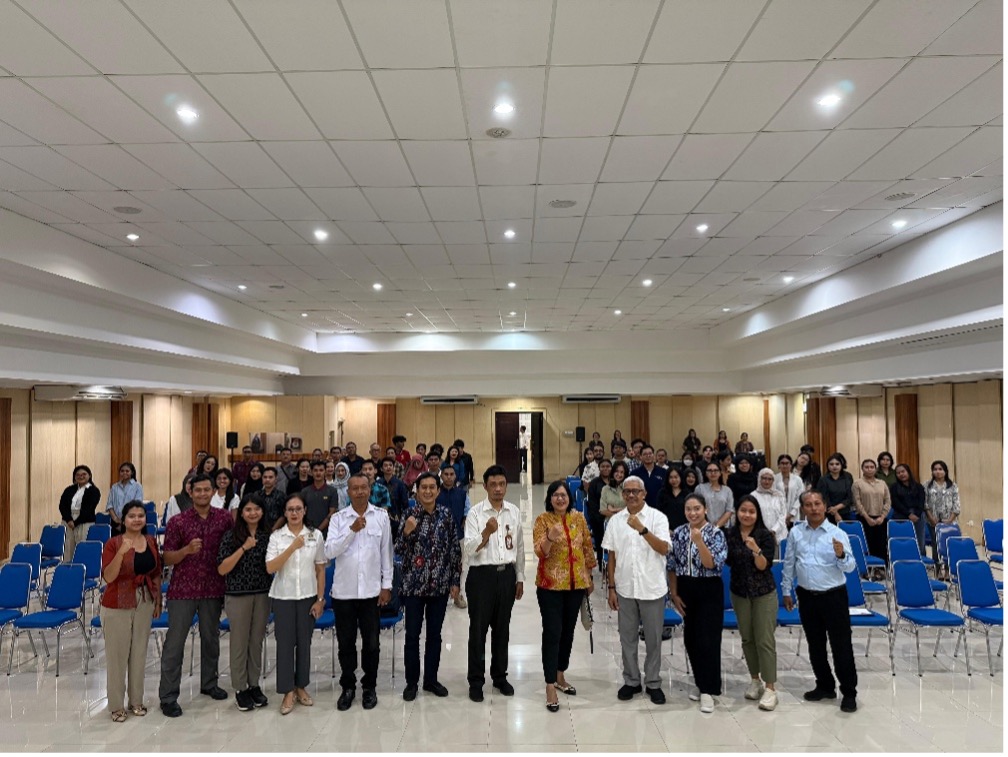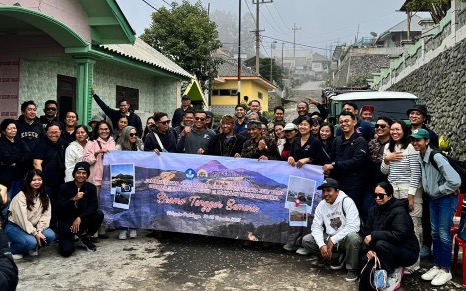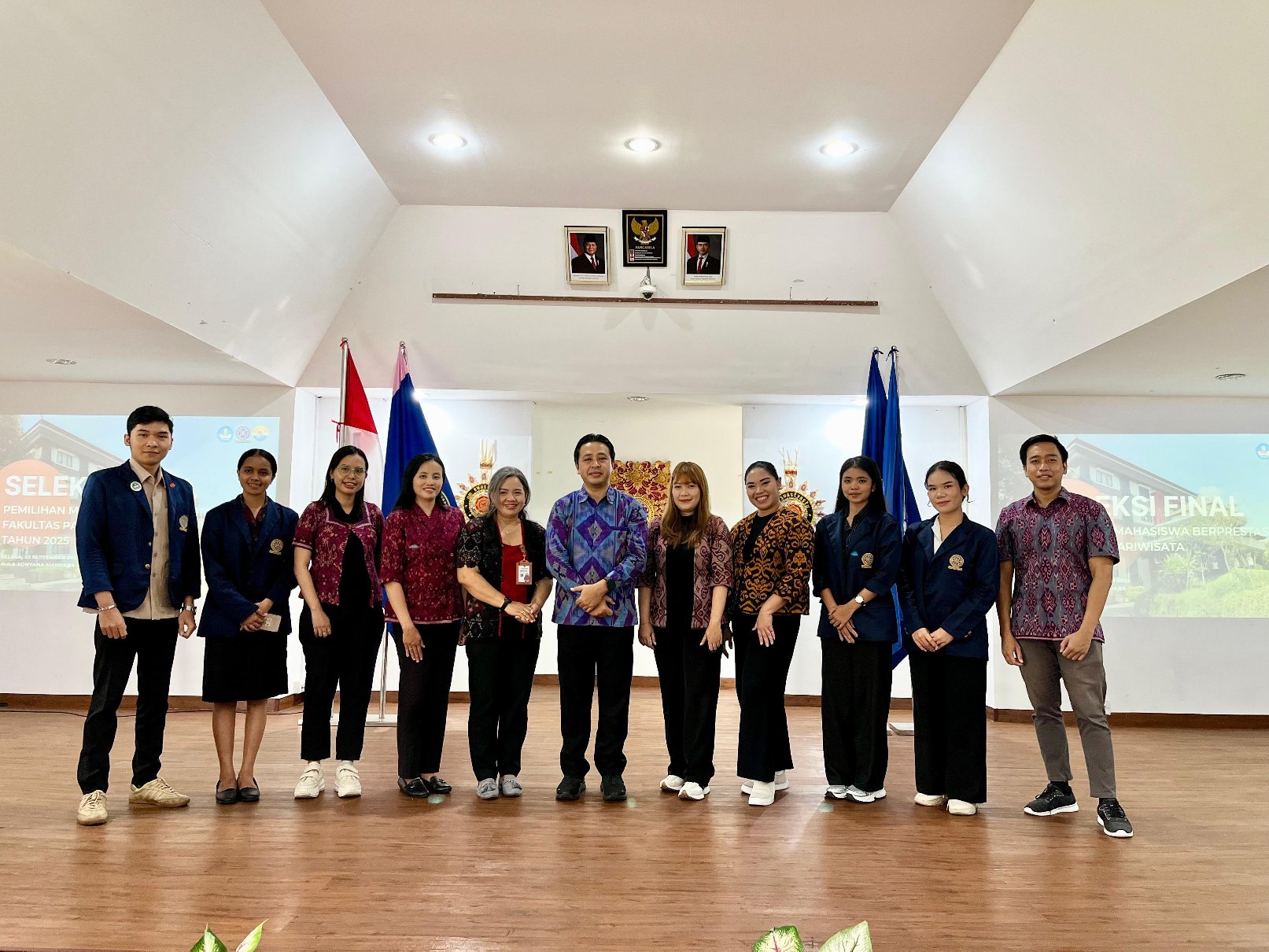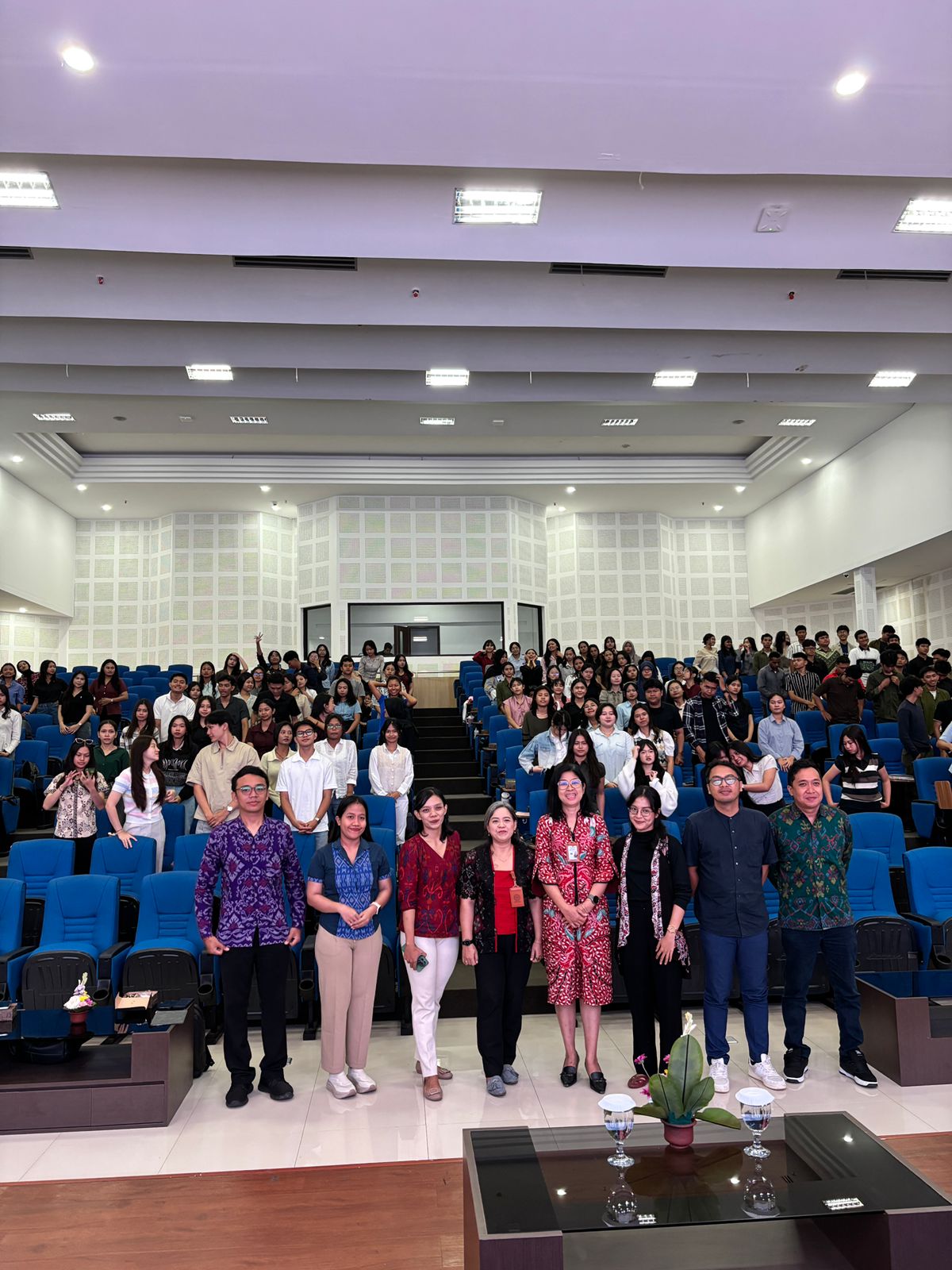Socialization of Sustainable Tourism Policy: Challenges and New Directions in Indonesia
Denpasar, September 29, 2025 – The Faculty of Tourism at Udayana University held a Tourism Policy Socialization event with the theme "Sustainable Tourism Policy: Challenges and New Directions in Indonesia." The event featured key resource person Dr. I Gusti Ayu Dewi Hendriyani, A.Par., M.Par., as the Assistant Deputy for Strategic Management at the Ministry of Tourism of the Republic of Indonesia.
The activity, which took place at the Nusantara Hall in the Udayana University Agrocomplex Building, coincided with the commemoration of World Tourism Day (WTD) 2025, which carried the theme "Tourism and Sustainable Transformation." This momentum was relevant for discussing the transformation of Indonesian tourism toward a more sustainable, inclusive, and globally competitive direction.
Strategic Issues in the Socialization
In her presentation, Dr. Dewi Hendriyani emphasized that Indonesian tourism not only plays a crucial role in the national economy—with a significant contribution to GDP, job creation, and state foreign exchange—but must also be able to balance social, cultural, and environmental impacts.
Several key points presented included:
RPJMN 2025–2029 Targets, including an increase in tourism's contribution to GDP up to 4.6%, foreign exchange earnings of USD 19–22.1 billion, and 25.7 million workers in the tourism sector.
Transformation towards quality and sustainable tourism, focusing on high-value tourism, product diversification (wellness, gastro-tourism, MICE, sport tourism, and Muslim-friendly tourism), and the implementation of Blue-Green-Circular Economy (BGCE) principles.
New directions for Indonesian tourism, which include trends in eco-friendly escapes, authenti-cities, bleisure travel, wellbeing weekenders, and tasty travels that highlight unique culinary experiences.
Main challenges include climate change, global competition, pandemic risk, and political instability; as well as strategic opportunities such as strengthening tourism villages, geoparks, medical & wellness tourism, and utilizing tourism digitalization.
Commitment to Sustainability
Through Presidential Regulation No. 12/2025 concerning the RPJMN 2025–2029, the government has affirmed the direction for quality and sustainable tourism development. This concept emphasizes a balance between increasing competitiveness, cultural preservation, environmental management, and the welfare of local communities.
The Faculty of Tourism at Udayana University is committed to continuing as a strategic partner to the government in strengthening academic capacity, research, and innovation to support the development of sustainability-oriented tourism policies.
The event was attended by lecturers and tourism students from the Faculty of Tourism at Udayana University. Through this socialization, it is hoped that a more comprehensive understanding of the importance of sustainable tourism transformation will emerge, realizing Indonesia as a leading global destination toward Golden Indonesia 2045.




UDAYANA UNIVERSITY